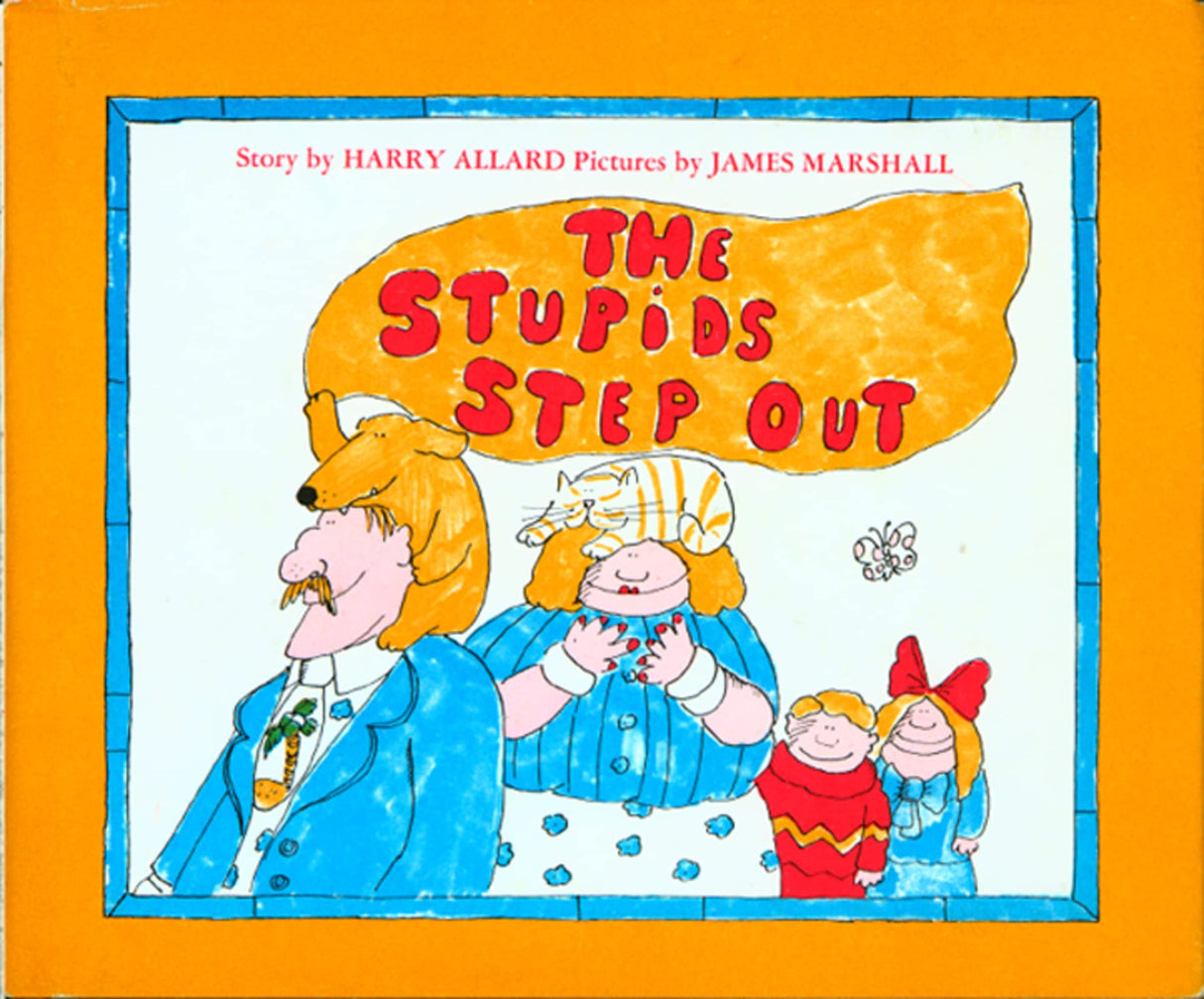The Stupids Step Out
The Stupids Step Out is backordered and will ship as soon as it is back in stock.
Couldn't load pickup availability
Genuine Products Guarantee
Genuine Products Guarantee
We guarantee 100% genuine products, and if proven otherwise, we will compensate you with 10 times the product's cost.
Delivery and Shipping
Delivery and Shipping
Products are generally ready for dispatch within 1 day and typically reach you in 3 to 5 days.
Author: Allard, Harry
Brand: Clarion
Edition: Illustrated
Binding: paperback
Format: Illustrated
Number Of Pages: 32
Release Date: 27-04-1977
Part Number: 9780395253779
Details: Product Description
The Stupids and their dog, Kitty, have a fun-filled day doing ridiculous things.
Review
Even youngest listeners will laugh with smug superiority as they follow these good natured dummkopfs from departure to journey's end. School Library Journal, Starred
About the Author
Harry Allard is the author of many hilarious books for children, including several
Miss Nelson and
Stupid Family titles, all illustrated by James Marshall.
James Marshall (1942-1992) created dozens of exuberant and captivating books for children, including The Stupids, Miss Nelson Is Missing!, and the ever-popular George and Martha books. Before creating his canon of classic, hilarious children's books, James Marshall played the viola, studied French, and received a master's degree from Trinity College. He also doodled. It was the doodles, and the unforgettable characters that emerged from them, that led him to his life's work as one of the finest creators of children's books of the twentieth century. In 2007, James Marshall was posthumously awarded the Laura Ingalls Wilder medal for his lasting contribution to literature for children.
Excerpt. © Reprinted by permission. All rights reserved.
great theorist of the free market believed in Providence. "The happiness of
mankind," Smith wrote, "seems to have been the original purpose intended by
the Author of nature." The workings of the Lord could be found not in the
pages of a holy book, nor in miracles, but in the daily, mundane buying-and-
selling of the marketplace. Each purchase might be driven by an individual
desire, but behind them all lay "the invisible hand" of the Divine. This invisible
hand set prices and wages. It determined supply and demand. It represented
the sum of all human wishes. Without relying on any conscious intervention
by man, the free market improved agriculture and industry, created surplus
wealth, and made sure that the things being produced were the things people
wanted to buy. Human beings lacked the wisdom, Smith felt, to improve
society deliberately or to achieve Progress through some elaborate plan. But
if every man pursued his own self-interest and obeyed only his "passions,"
the invisible hand would guarantee that everybody else benefited, too.
Published in 1776, The Wealth of Nations later had a profound
effect upon the nation born that year. The idea that "life, liberty, and the
pursuit of happiness" were unalienable rights, endowed by a Creator, fit
perfectly with the economic theories of Adam Smith. "Life, liberty and estate"
was the well-known phrase that Thomas Jefferson amended slightly for the
Declaration of Independence. The United States was the first country to
discard feudal and aristocratic traditions and replace them with a republican
devotion to marketplace ideals. More than two centuries later, America"s
leading companies—General Motors, General Electric, ExxonMobil,
Microsoft, Wal-Mart, Boeing, et al.—have annual revenues larger than those
of many sovereign states. No currency is more powerful than the U.S. dollar,
and the closing prices on Wall Street guide the financial markets of Tokyo,
London, Paris, and Frankfurt. The unsurpassed wealth of the United States
has enabled it to build a military without rival. And yet there is more to the
U.S. economy, much more, than meets the eye. In addition to America"s
famous corporations and brands, the invisible hand has also produced a
largely invisible economy, secretive and well hidden, with its own labor
demand, price structure, and set of commodities.
"Black," "shadow," "irregular," "informal," "illegal," "subterranean," "u
EAN: 9780395253779
Package Dimensions: 8.4 x 7.2 x 0.2 inches
Languages: English





